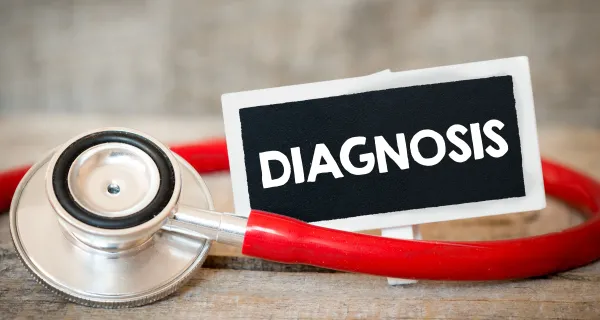Neurosurgery Coding Alert
Get 58/76/78/79 Rules Straight Before Coding Surgery During Global
Do you know which modifier to use if the surgery is related to a previous procedure?
Coding for patients who have had surgery are the bread and butter of practices like neurosurgery; get any of these coding rules wrong, and you risk leaving money on the (operating) table. Further, you could make a mistake that ends up attracting auditors’ attention — also not good for your practice.
With so much to focus on with a standard surgery, things obviously get much trickier for coders when a patient returns for another surgery during the global period of the previous surgery. This is when you’ll need help from modifiers 58 (Staged or related procedure or service by the same physician or other qualified health care professional during the postoperative period), 76 (Repeat procedure or service by same physician or other qualified health care professional), 78 (Unplanned return to the operating/procedure room by the same physician or other qualified health care professional following initial procedure for a related procedure during the postoperative period), and 79 (Unrelated procedure or service by the same physician or other qualified health care professional during the postoperative period).
Read on to see when to use each of these surgical modifiers to get the most out of your surgeon’s services.

If it Relates, Use 58/78
When the surgeon performs a related procedure during the postoperative global period of a previous surgery, you’ll choose from modifiers 58 and 78, explains Suzan Hauptman, MPM, CPC, CEMC, CEDC, director, compliance audit, Cancer Treatment Centers of America. If a patient requires a return trip to the operating room (OR) that is directly related to a procedure that took place within the last 90 days, the 78 modifier is appended, she explains.
“Often the quandary is whether the service was planned/ staged or unplanned, but related. A staged procedure would be a 58,” while an unplanned procedure would be 78, she continues.
Also: There are special rules to follow specifically for modifier 78, points out Mary I. Falbo, MBA, CPC, CEO of Millennium Healthcare Consulting Inc. in Lansdale, Pennsylvania. The second surgery must be for care “as an outgrowth of the original surgery, not the original condition,” she explains.
Further, modifier 78 has two caveats attached to it:
- “The patient must be returned to the OR or endoscopy suite to qualify for the 78 modifier. Unlike modifiers 58 and 79, 78 may not be performed anywhere but in the OR or the endoscopy suite.
- “The reason for the subsequent surgery is related to the original surgery, meaning that there is a complication of the surgery requiring a return to the OR or endoscopy suite.”

Make Less Frequent Use of 79
Most of your surgeries that occur during the postoperative period of another procedure will require you to use either modifier 58 or 78; far less often employed is modifier 79 — though there is still reason to include it in your coding know-how.
“Modifier 79 is used in the strictest sense for care that is entirely unrelated to the prior surgery that created the current global period. Services that qualify for a 79 modifier may be performed anywhere” and not just the OR, says Falbo.
Circumstances will likely prevent you from needing modifier 79 often, says Marcella Bucknam, CPC, CCS-P, COC, CCS, CPC-P, CPC-I, CCC, COBGC, revenue cycle analyst with Klickitat Valley Health in Goldendale, Washington. If a patient needs unrelated surgery during the global period of another procedure, that unrelated procedure is typically outside the purview of neurosurgeons, she explains.
“Modifier 79 is much less frequently used. Often an unrelated procedure during the global period would be performed by a different specialty and no modifier is appropriate; but if the same surgeon — or other surgeon in the same practice and specialty — operates for an unrelated procedure, modifier 79 is used on the second procedure.
Document Circumstances on 58/78/79 Claims
When submitting claims with modifiers 58, 76, 78, or 79, coders need to be sure to include documentation that explains how the surgery relates (or doesn’t relate) to the previous surgery. “The documentation should clearly indicate the relative nature of the procedure. The physician should be very clear when talking about the second procedure in both the visit leading up to the procedure as well as the procedure itself,” Hauptman recommends.
Related Articles
Neurosurgery Coding Alert
- 2021 E/M Q&A:
New Reporting Rules Have Early Hits, Misses
Focusing on MDM has changed the calculus for coders, providers. When the AMA decided that [...] - Surgery:
Head Down the Right Coding Path With Craniotomy/Craniectomy Skills
Use add-on code when surgeon removes skull portion. When your surgeon performs a craniotomy or [...] - Modifier Madness:
Get 58/76/78/79 Rules Straight Before Coding Surgery During Global
Do you know which modifier to use if the surgery is related to a previous [...] - You Be the Coder:
Add-Ons and Vertebral Surgery Codes
Question: Our surgeon performed percutaneous lumbosacral vertebroplasty with biopsy, which included two more lumbosacral vertebrae [...] - Reader Questions:
Multiple Brachial Plexus Blocks = 1 Code
Question: The provider administered a brachial plexus block. He wants to bill this with 8 [...] - Reader Questions:
Get Back to Spinal Compression Fx Basics
Question: I’m a little unclear on spinal compression fractures. What exactly are they, and how [...] - Reader Questions:
Skull Base Lesion Tx Requires Multiple Surgeons
Question: When a patient receives treatment for a skull base lesion, how many different surgeries are [...]




